PsychoGenics Drug Discovery Featured in Nature Biopharma Dealmakers
A phenotypic high-throughput approach to neuropsychiatric drug discovery
Using its SmartCube platform along with machine learning algorithms, PsychoGenics has a powerful tool for the discovery of novel neuropsychiatric compounds.
PsychoGenics has developed a pioneering approach to neuropsychiatric drug discovery using behavioral assays combined with machine learning to create a high-throughput behavioral screening technology. Its SmartCube platform has proved to be a powerful tool for making therapeutic predictions in central nervous system (CNS) disorders and the company, through partnerships, currently has five compounds in clinical trials. This includes a novel compound known as SEP-363856, being developed by Sunovion Pharmaceuticals for schizophrenia, which is now in phase 3 clinical trials.
The company has a 20-year history in contract research and drug discovery focused on CNS disorders, including neurodegeneration, psychiatric and neurodevelopmental disorders, seizure disorders, pain, cognition and obesity. Now based in Paramus, New Jersey, PsychoGenics has a staff team of 120, led by Emer Leahy, a neuroscientist with more than 25 years of drug discovery experience.
Drug discovery, particularly for psychiatric disorders has floundered in recent years, leading to many large pharmaceutical companies exiting the area. “It’s very challenging, because you’re dealing with multigenic disorders, involving environmental influences, so a conventional target-driven approach to CNS drug discovery has really not worked out well,” said Leahy
The SmartCube approach
Instead, PsychoGenics has taken a phenotypic approach. “What better route to phenotypic discovery than studying the behavior of a whole animal, which is of course the output of the brain?” said Leahy. To do this, PsychoGenics developed SmartCube, a proprietary platform that allows detailed behavioral observation of the effects of a drug molecule. The platform places a mouse inside a box to be subjected to a sequence of challenges such as a mild electric shock or a floor movement and records subsequent behavior for analysis.
“We’re collecting about a half a million data points over the course of a session and using computer vision, we translate those data points into about 2,000 behavioral features, which allow us to create behavioral drug signatures,” explained Leahy. PsychoGenics has also developed NeuroCube to interrogate gait geometry and dynamics, and PhenoCube, which allows longer term monitoring of social, circadian and cognitive behavior.
“Our other platform, eCube, collects EEG [electroencephalography] signatures for drugs tested. This has proved to be a very powerful accompanying tool to help identify the potential circuitry associated with specific behaviors,” said Leahy.
The behavioral and EEG signatures PsychoGenics create are subsequently mined, employing machine learning algorithms to find patterns in the data. Their analysis allows the behavioral signatures of different drug classes, such as antipsychotics or antidepressants, to be categorized, including how these signatures change with dosage. “We’ve built a very extensive reference compound database of signatures, and we can take novel compounds and then look for patterns and compare those patterns with the database to predict therapeutic utility,” said Leahy.
What better route to phenotypic discovery than studying the behavior of a whole animal, which is of course the output of the brain?
Emer Leahy, President & CEO, PsychoGenics
PsychoGenics has the capacity to screen thousands of compounds in SmartCube, in what they call in vivo high-throughput technology (Fig. 1). Using diverse libraries of compounds, the hit rate is typically 30%, and the company can use the same behavior-driven approach for lead optimization, where drug modifications can be tested using SmartCube. “The turnaround is very fast and informative. Predicted therapeutic utility is almost always confirmed in other assays and because the readout is behavior, it indirectly tells you your compound is likely getting to the brain,” said Leahy.
Collaborations proving successful
The success of this approach is exemplified by PsychoGenics’ research collaboration with Sunovion Pharmaceuticals to use SmartCube to develop proprietary compounds for psychiatric disorders. The most advanced molecule discovered from the collaboration is SEP-363856, a novel psychotropic agent being evaluated for schizophrenia. Contrary to currently marketed treatments for schizophrenia that are focused on blocking dopamine 2 (D2) receptors, SEP-363856 does not bind to D2 receptors and has the potential to be the first new mechanism of action for an antipsychotic drug in 60 years.
Results from a 4-week, double blinded, placebocontrolled phase 2 clinical study of SEP-363856 with 245 patients, demonstrated statistically and clinically meaningful improvement in both the Positive and Negative Symptom Scale (PANSS) of schizophrenia. A further 6-month open-label extension study saw continued improvement across efficacy measures. “This is an exciting advance,” said Leahy, “SEP-363856 exhibits robust therapeutic effects in patients diagnosed with schizophrenia across a broad range of disabling symptoms, including positive, negative, depressive and general psychopathology symptoms. Its safety profile was similar to placebo.”
In addition to its internal discovery program and pipeline of CNS active compounds, PsychoGenics continues to explore collaborations with companies wishing to develop compounds within shared-risk partnerships, such as the recently announced partnership with Karuna Therapeutics. “SmartCube and our accompanying high-throughput in vivo technologies offer an appealing target agnostic option for many companies with interesting compound libraries looking to discover much needed, novel neuropsychiatric treatments,” said Leahy.
View Featured Insert
Contact
Emer Leahy, President & CEO
PsychoGenics
Paramus, NJ, USA
Tel: +1-914-406-8008
Email: emer.leahy@psychogenics.com


